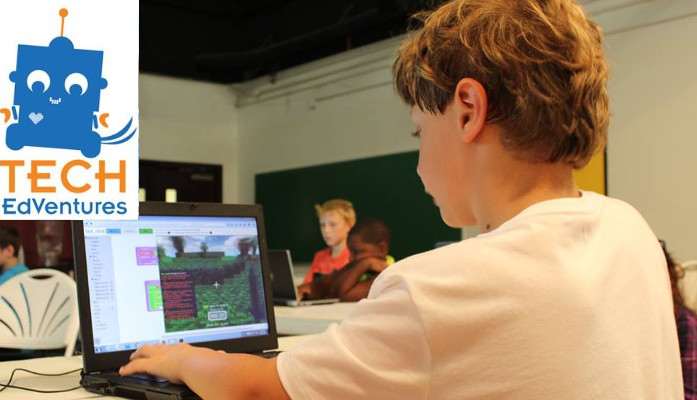How coding builds confidence for kids with learning challenges
My after-school Python programming class for 3-5th graders had just about wrapped up when Jarred’s mom came for him. Like any good teacher, I took a moment to give her an update. “I’m really impressed. Jarred is curious and eager to learn. He’s doing great work.” Mom did a double take. “You mean Jarred?” she asked, pointing in his direction. “Sure,” I said, “he’s one of my best students. Thoughtful. Curious. Hardworking. He’s great.” Mom looked shocked. Then teary eyed. What had I said?
Lots of kids in the group were doing well, but Jarred made it look like a cake walk.
It turns out that very few of Jarred’s teachers ever told Mom that her son was great. “He’s unfocused. Difficult. Has trouble reading. He’s a problem. At least that’s that message we get from school.” That was not the child I encountered in class. Jarred had a laser focus on our material. Lots of kids in the group were doing well, but Jarred made it look like a cake walk. He didn’t just get the right answers. Jarred really understood how computers worked, and the more programs we ran, the better his intuition became. Jarred was often, if not always, the first child to raise his hand with answers to difficult questions, and he approached our coding lessons with genuine passion, even though they could be complex. It was evident that Jarred had some learning challenges, but while he was digging through a page of code, Jarred was masterful.He had discovered three things his regular school never offered him: self-confidence, motivation and a feeling of expertise.

Jarred’s experience makes one more argument for the importance of STEM studies in a well-rounded, 21st Century curriculum. Carol Ann Tomlinson, in her work around differentiation of instruction, makes a powerful claim that student interest and level of engagement can have a tremendous impact on learning outcomes. Our experience with students like Jarred shows how motivating STEM studies can be, especially for kids who struggle in other areas of the curriculum. While more research is needed, it’s clear that for some students the integration of STEM studies into the general curriculum offers an entry point that boosts self-confidence and motivates increased attentiveness and task persistence. It’s our job as educators to use STEM wisely throughout the curriculum so that struggling learners like Jarred discover the incredible skills that they indeed possess.
Dr. Allen Selis is the founder of STEM Crafters, a Dallas based startup that teaches engineering and coding skills for children from Kindergarten through 8th grade. You can reach him at Allen@techedventures.com or @STEMCrafters on Twitter. You can also learn more about coding and engineering curriculum for schools at STEM Crafters!
